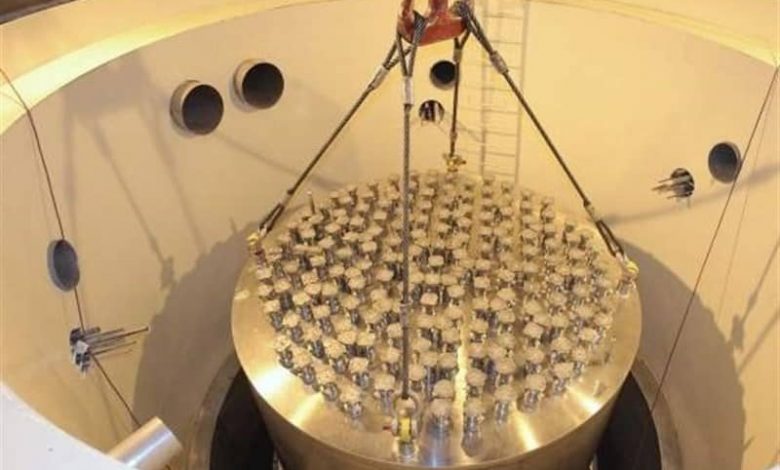Iran continues its Nuclear Extortion in Light of EU’s Weak Policies

Written by
Mohammad Sadat Khansari
Iran: Mullah’s Historic Nuclear Claims Grow Less And Less Credible
Days after the Iranian regime’s new president, Ebrahim Raisi, was inaugurated, the U.N. atomic watchdog underlined that “Iran has accelerated its enrichment of uranium to near weapons-grade,” according to Reuters.
“In May, the International Atomic Energy Agency reported that Iran was using one cascade, or cluster, of advanced centrifuges to enrich to up to 60% at its above-ground pilot enrichment plant at Natanz. The IAEA informed member states on Tuesday that Iran was now using a second cascade for that purpose, too,” Reuters added.
As Reuters asserted, “The move is the latest of many by Iran breaching the restrictions imposed by the 2015 nuclear deal, which capped the purity to which Tehran can refine uranium at 3.67%.”
In February 2021, the International Atomic Energy Agency (IAEA) confirmed the regime had produced 3.6 grams of uranium metal at the Isfahan nuclear plant. While the regime claimed it has “civilian purposes” of producing uranium metal, the European signatories of the 2015 nuclear deal expressed “grave concern” and described these actions as a “key step in the development of a nuclear weapon.
In addition, following the IAEA report on the increase in uranium metal production, the U.S. State Department spokesman Ned Price underlined that the regime “has no credible need to produce uranium metal, which has direct relevance to nuclear weapons development.”
The Iranian regime has never abided by its commitments under the nuclear deal, formally known as the Joint Comprehensive Plan of Action or JCPOA.
Fitting a Square Peg into a Round Hole with Iran Negotiations – April 2021
In January 2019, Ali Akbar Salehi, the head of the Atomic Energy Organization of Iran, acknowledged that the Arak heavy water facility remained fully operational even though the JCPOA determined that its core was to be deactivated and filled with cement.
Salehi, in November, acknowledged how the regime deceived the international community during the nuclear negotiations. “They thought that they won the negotiation. But – I could not explain this at that time – we had a countermeasure, and while we proceeded with the case, they didn’t achieve what they planned for, and we did not become trapped in the enrichment deadlock,” Salehi said.
On February 8, Mahmoud Alavi, the regime’s then-Minister of Intelligence, acknowledged the regime’s nuclear ambitions. He said, “if they push Iran in those directions, it is not Iran’s fault. It is the fault of those who pushed Iran in that direction.”
While the regime continues its nuclear weapons program, the European signatories of the JCPOA refuse to seriously hold the regime to account and curb its malign activities. The E.U. powers have wrongly pushed for negotiations and giving incentive packages to the mullahs’ regime.
Their efforts to keep the highly flawed JCPOA alive intensified, when in 2018, the U.S. pulled out of the deal, citing the regime’s malign activities that violated the “spirit” of the JCPOA.
Unfortunately, to hold the regime in the negotiations, the E.U. powers consented to the mullahs’ nuclear extortion. While the world condemned the recent appointing of Raisi, a known human rights violator, as the regime’s president, the European Union sent one of its top diplomats to Raisi’s inauguration on August 5.
Iran: Fake News or Regime’s New Tactic on its Nuclear Program
Josep Borrell, head of the E.U.’s External Actions, justified Mora’s travel to Iran by saying that “It is crucial to engage diplomatically with the new administration and pass directly important messages. As coordinator of the JCPOA.” Borrell underlined that restoring the JCPOA is a “key priority” of the E.U. Yet, he refused to address Iran’s ongoing human rights violations.
These weak reactions to the regime’s new administration, which consists of thieves and terrorists tasked with prolonging its life, would only encourage the regime to continue its nuclear extortion. The regime is not far from obtaining a nuclear weapon, and giving concessions would only lead to an international catastrophe.
Mrs. Maryam Rajavi, the President-elect of the Iranian Resistance, underlined in July that “While the regime has been hiding its nuclear program by deceiving the world, the international community has been trying to stop or curb this project by granting concessions or by showing complacency,” Mrs. Rajavi said and emphasized that “any agreement that does not completely close down the regime’s bomb-making, enrichment and nuclear facilities is unacceptable. And the Iranian people will not accept it.”
Iran continues its Nuclear Extortion in Light of EU’s Weak Policies

